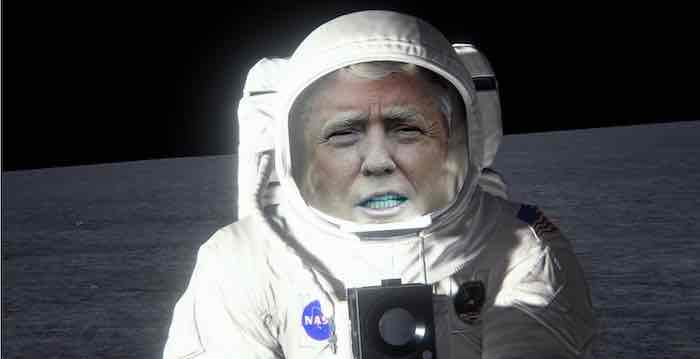By Dan Calabrese ——Bio and Archives--October 5, 2017
American Politics, News | CFP Comments | Reader Friendly | Subscribe | Email Us

More than ever, American prosperity and security depend on U.S. leadership in space. Yet national space policy often has lacked a coherent, cohesive vision. The results not only are disappointing; they endanger the well-being of the American people. The U.S. pays Russia more than $76 million a seat to carry American astronauts to the International Space Station, since we have no vehicle capable of performing this task. The intelligence community reports that Russia and China are pursuing a full range of antisatellite technology designed to threaten our military’s effectiveness. These are only two examples of America’s abdication of leadership in space. The president has charged the National Space Council with restoring that leadership. The council’s objectives are clear. We will refocus America’s space program toward human exploration and discovery. That means launching American astronauts beyond low-Earth orbit for the first time since 1972. It means establishing a renewed American presence on the moon, a vital strategic goal. And from the foundation of the moon, America will be the first nation to bring mankind to Mars.
We will renew America’s commitment to creating the space technology needed to protect national security. Our adversaries are aggressively developing jamming and hacking capabilities that could cripple critical military surveillance, navigation systems and communication networks. In the face of this threat, America must be as dominant in the heavens as it is on Earth. We will promote regulatory, technological, and educational reforms to expand opportunities for American citizens and ensure that the U.S. is at the forefront of economic development in outer space. In the years to come, American industry must be the first to maintain a constant commercial human presence in low-Earth orbit, to expand the sphere of the economy beyond this blue marble.?I guess the idea is that much of this jamming and hacking technology is space-based, or at least involves interaction with space in some way, and therefore we're at a disadvantage if we don't have the ability to get ourselves into space and to operate there independently. That makes some sense, and I guess I can understand why we'd rather be able to get ourselves to the International Space Station than have to hitch rides with the Russians like we're doing now - especially at $76 million a seat, although I wonder what it would cost us to develop our own transport capabilities. It makes sense that there is some research and technology development work that you can do better when you can make your way beyond the Earth's atmosphere. But I still don't quite see why we need to go back to the moon, nor do I understand what we think we're going to discover if we expand manned exploration deeper into space. We've already learned a great deal from unmanned crafts that have landed on Mars and have traversed the deepest reaches of the solar system. What greater benefit would we realize from manned expeditions?
Support Canada Free Press

View Comments
Dan Calabrese’s column is distributed by HermanCain.com, which can be found at HermanCain
Follow all of Dan’s work, including his series of Christian spiritual warfare novels, by liking his page on Facebook.